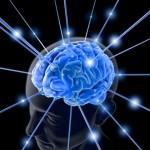10 Innovations for the Cognitive Fitness of an Aging Society
Over the last few weeks I have had the chance to participate in the Summit of the Global Agenda run by the World Economic Forum, and the Forum on Neuroscience and Behavior Change by the Robert Wood Johnson Foundation. Both events were very stimulating, with excellent participants and insightful agendas, but I realized that still too few decision-makers are aware of the amount and quality of innovation going on to translate findings from cognitive neuroscience and neuropsychology into tools and practices that may well revolutionize brain health and cognitive fitness over the next 5–10 years.
Summit of the Global Agenda run by the World Economic Forum, and the Forum on Neuroscience and Behavior Change by the Robert Wood Johnson Foundation. Both events were very stimulating, with excellent participants and insightful agendas, but I realized that still too few decision-makers are aware of the amount and quality of innovation going on to translate findings from cognitive neuroscience and neuropsychology into tools and practices that may well revolutionize brain health and cognitive fitness over the next 5–10 years.
In the Thanksgiving’s spirit, let’s thank 10 pioneers for emerging innovations which are not “pie-in the-sky” ideas but well-thought out and scalable approaches that are already gaining traction in the real-world. Note that most those of pioneers will speak at the inaugural SharpBrains Summit:
Policy
1) The Government of Ontario invests $10 million dollars to create a Centre for Brain Fitness at Baycrest. More info on their R&D priorities here. (Speaker: Bill Reichman).
Assessment tools
2) Brain Resource and OptumHealth Behavioral Solutions partner to offer an online assessment of brain functions (both cognitive and emotional) through major employers in the US. Great article here. (Speakers: Evian Gordon and David Whitehouse)
3) Oregon Health & Science University researches the use of gaming tools for real-time cognitive monitoring, in order to help keep older persons independent, active, and productive in later life. More info here. (Speakers: Misha Pavel and Holly Jimison).
Training/ therapy tools
4) Some of the pioneers of cognitive behavioral therapy (CBT) develop computerized CBT to expand the reach of therapists and open the intervention to more participants. Some insurance companies start to make such tools widely available. More info here. (Speaker: Jesse Wright).
5) Insurance companies (Allstate), driver associations (AAA), driving schools (Young Drivers of Canada) partner with brain fitness software developers (Posit Science, CogniFit) to bring to market innovative programs to help evaluate and train driver fitness. Interview with AAA Peter Kissinger here. (Speakers: Tom Warden, Peter Christianson, Steven Aldrich, Schlomo Bretznitz).
6) Researchers at USC Institute for Creative Technologies develop Virtual Reality and Augmented Reality approaches both to help assess and to enhance neurocognitive and emotional functions. More info here. (Speaker: Skip Rizzo).
Delivery models
7) A group of scientists and health professionals in Santa Barbara launch CFIT, the first all-inclusive “cognitive shop” to fill in the gap between what patients need and what the health system is offering today. Interview on this initiative here. (Speaker: Kenneth Kosik).
Research
8 ) U Illinois’ Arthur Kramer masterminds much needed comparative research of two key non-invasive interventions for cognitive fitness: aerobic fitness training and computerized cognitive training (including each in isolation and the combination of both). Results are not available yet, but we are looking forward to seeing them published in 2010.
9) NIH helps develop basic infrastructure with the development of the NIH Toolbox for assessment of Neurological and Behavioral Function to provide valid, reliable standarized instruments to measure brain functions in clinical trials. More info here.
10) Researchers at Karolinska Institute show, in a recent paper published in Science, how a non-invasive intervention (cognitive training) can directly impact the dopamine system (a common target of drugs). More info here. (Speaker: Torkel Klingberg).
Thank you all for your excellent work!



This is very exciting news! I certainly feel there is growing demand for cognitive fitness. For example, many college students seek drugs like adderall to help with papers and exams. But these solutions can sometimes lead to drug addiction and other risks. However — if we could implement the the practice of meditation in order to build focus in college students then it can do wonders for productivity and learning.
Mindfulness meditation has also shown to help with those with ADHD, depression, and other mental ailments. These things should be taught to everyone! We should build a curriculum to help teach kids these skills of mind.